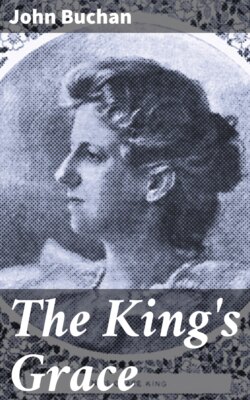Читать книгу The King's Grace - John Buchan - Страница 7
На сайте Литреса книга снята с продажи.
PROLOGUE
ОглавлениеTable of Contents
For fifteen centuries there have been kings in Britain, and for more than three hundred years there has been a single kingship. It has changed in character since the old monarchs, who ruled by virtue of their ownership of lands or their prowess in battle, but it has succeeded always in adapting itself to the changing character of our people. Like many of the deeper truths of government, it cannot be readily defined. Parliament can alter the laws at will, but the seventeenth-century doctrine still holds—that there is a "law fundamental," which may not be tampered with as long as the nation remains what it is. So kingship, which during the ages has shed much of its old power, yet maintains its central function, and continues to be a primary instinct of our people. A great revolutionary like Cromwell might upset one form of it, but only to spend himself in the effort to find another. We have rebelled against kings, but never against kingship.
In the last two hundred years, while the Throne has lost in definable powers, it has gained in significance. There have been wise monarchs and some not so wise, but the inherent and accumulated majesty of the office has increased. It is not only higher than any other human estate, but of a different kind from any other, for it is the mystical, indivisible centre of national union. It is the point around which coheres the nation's sense of a continuing personality. In any deep stirring of heart the people turn from the mechanism of government, which is their own handiwork and their servant, to that ancient, abiding thing behind governments, which they feel to be the symbol of their past achievement and their future hope.
But the Throne has altered in other things besides constitutional practice. It has come closer to the lives and interests of the citizen. The King is to-day far more a people's king than when an Edward or a Henry returned in triumph from the French wars. The office has come into the light of common day without losing its traditional glamour. Its dignity has not declined, but affection has been joined to reverence. Since the Tudors the phrase has been the King's Majesty. To-day the older form of words is the more fitting, the King's Grace.
There is nothing quite like the status of our Crown in the modern world, and I cannot find any close parallel in history. In law it can do no wrong; its Ministers alone are responsible and accountable. In a season of turmoil it remains a punctum indifferens, a calm at the heart of the storm. The King is of no class, being above classes; he is as much akin to the worker in the mine and to the labourer in the field as to the highest nobility. He can have no party bias, for his only bias is towards the whole people. He cannot initiate policies, though he creates the atmosphere that makes policies feasible. What is done in his name in the ordinary business of government is the work of others, and to them goes the blame or the credit. Of his own accord he does not interfere, unless there is a turning of distracted partisans to him, as to the traditional bulwark of the nation. Pinnacled above all, he is yet closer to the national consciousness than even the most famous Minister. His duty is not to act but to be, to represent the ultimate sanctities of the land which endure behind passing fevers and bewilderments: like Time,
"who in the twilight comes to mend All the fantastic day's caprice."
When in a high mood of exaltation or sorrow the nation becomes a conscious unity and turns to him, then and only then does he intervene.
But the pedestal on which the King is placed is also a watch-tower. Having the whole people in his care, and having no prejudice of class or dogma or party, he is concerned only with the greater things, the profounder movements of national destiny. So in this year of his Silver Jubilee I have tried to present the spectacle of his reign with the Throne as the abiding background—such a spectacle as might be viewed from a high tower; and to attempt what interpretation of its significance is permitted to one who is himself a dweller in the confused lowlands.
